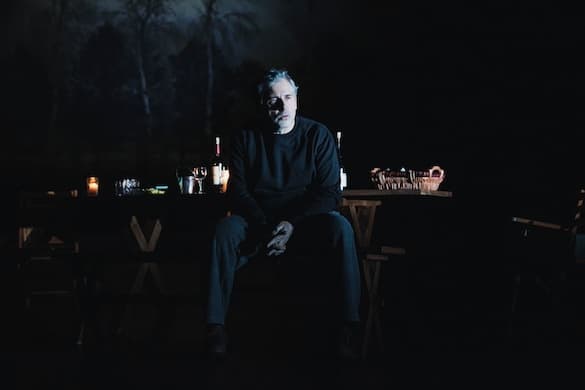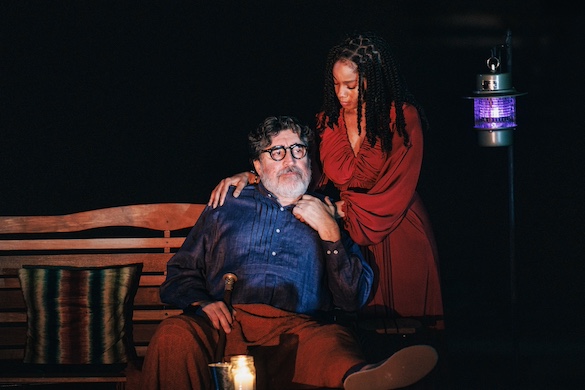With Steve Carell in the Title Role, Chekhov’s Comedic Elements Stand Out in This ‘Uncle Vanya’
Unfortunately, while Carell and many others in the cast offer credible performances, the revival now at Lincoln Center Theater, featuring a new adaptation by Heidi Schreck, fails to live up to other interpretations of the play.

Before this past weekend, the last production I had caught of “Uncle Vanya” — and one of the best I’ve ever seen — was staged in the living room of a Manhattan loft, with the actor and director David Cromer cast in the title role. The company, which toured similarly intimate local spaces last summer and also included Bill Irwin and Marin Ireland, both superb, used a popular translation by Paul Schmidt; regardless, it felt utterly, at times devastatingly, fresh.
The revival of “Uncle Vanya” that has just arrived at Lincoln Center Theater features a new adaptation by Heidi Schreck, who became the darling of New York theater several years back, when her polemic “What the Constitution Means to Me” — which drew on her experiences as a teenage debater and in which she also starred — scooped up a bevy of honors, from an Obie Award to a Tony nomination once it transferred to Broadway.
For many, though, the main attraction of this new “Vanya” will be Steve Carell, the TV and film star who is making his Broadway debut as Chekhov’s forlorn protagonist. Like other works by the playwright, “Vanya” boasts often underexploited comedic elements, so it shouldn’t be too surprising that an actor whose high-profile credits include “The Office,” “The 40-Year-Old Virgin,” and the animated classic “Despicable Me” would be drawn to it.
A few of Mr. Carell’s screen projects in recent years have suggested he’s also growing more eager to flex his dramatic muscles, and in a part that has attracted ace players from Ralph Richardson to Simon Russell Beale, he would seem to have a strong vehicle. The director Lila Neugebauer, fresh off her triumphant helming of “Appropriate,” has surrounded him with accomplished stage veterans, among them Jayne Houdyshell, Alfred Molina, and Alison Pill.

The results are … meh. At least Ms. Schreck has not done anything radically different, as I’d feared she might — like, say, turn Alexander, the insufferably vain, whiny, money-grubbing professor who was married to Vanya’s late sister (expertly played by Mr. Molina), into an orange-faced real estate mogul. The setting is listed simply as the family’s country estate and farm, with no tortured attempts to underline parallels between social change and inaction — key themes in the play — in 19th century Russia and our country today.
Mimi Lien’s starkly handsome set does at one point feature a turntable, on which Alexander’s beautiful and eternally bored second wife, Elena — played by an elegant Anika Noni Rose — spins vinyl recordings by Miles Davis. Ms. Rose enjoys a nice chemistry with William Jackson Harper, who brings a relaxed sexiness to the environmentally conscious doctor Astrov, one of several characters bewitched into lethargy by the visiting Elena’s presence.
Of course, Vanya pines just as desperately, if less successfully, for the younger woman’s affection; in Mr. Carell’s performance, though, his longing can seem less intense, and less sad, than it has with other Vanyas I’ve seen. The leading man is predictably effective when the play, and Ms. Neugebauer, allow him to be more patently buffoonish; when he crawls across a table furiously during Vanya’s climactic showdown with Alexander, the character’s frustration is both accessible and hilarious.
Mr. Carell is, to be fair, credible in bleaker moments; he just never quite breaks our hearts, as anyone playing this defeated man must. That task falls to Ms. Pill, who is cast as the similarly put-upon but less disgruntled Sonia, Vanya’s niece and Alexander’s daughter. The actress shimmers in the part, exuding a girlish buoyancy that leaves us shattered when it is inevitably extinguished.
Ms. Houdyshell and fellow virtuosos Jonathan Hadary and Mia Katigbak prove characteristically supple in other roles, and Chekhov’s remarkable ability to fuse the comic and tragic and a sense of futility with one of hope ultimately shines through — just not as brightly as it has in better interpretations.

